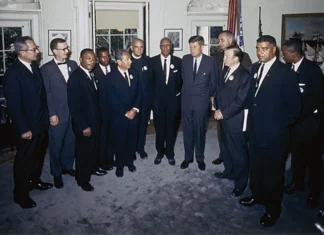
By Aaron Allen, The Seattle Medium
In response to a 2021 Washington State Supreme Court ruling (State v Blake), which declared the state’s drug possession law unconstitutional, the Administrative Office of the Courts (AOC) in Washington State is gearing up to introduce the Blake Refund Bureau. This bureau will provide economic relief to individuals who have had their felony drug convictions and misdemeanor marijuana charges vacated as a result of the decision.
The court’s decision was based on the finding that the law failed to necessitate proof of intent to possess a controlled substance, thus criminalizing innocent behavior, which violated constitutional rights. In light of this ruling, the AOC anticipates that a staggering number of drug possession felonies from the 1970s, totaling over 200,000 cases, may be overturned.
According to an AOC report, “If you have been convicted of possessing drugs, you may be entitled to have the conviction taken off your record. If you are on community custody with the Washington State Department of Corrections (DOC), you may be entitled to be immediately released from supervision through a commutation of your sentence by the Governor. If you paid any fines on drug cases, you may be eligible to have your fines reimbursed.”
“This action extends to individuals who were previously free as well as those currently serving time in prison. It also presents an opportunity to dismiss tens of thousands of minor charges related to marijuana,” stated the report.
Statistics show that Black people are still overrepresented behind bars, making up about 38 percent of the prison and jail population while accounting for 12 percent of the U.S. residency. At least 113 million adults in the U.S. (roughly 45 percent) have a family member who has been incarcerated, and 79 million people have a criminal record, which is roughly the population of Canada.
According to the Office of Public Defense, it is estimated that over 200,000 felony drug possession charges dating back to the 1970s may be eligible to be vacated in superior courts. Additionally, it is estimated that 150,000 misdemeanor marijuana charges may also be eligible for vacation. To help offset costs to courts, prosecutors, and defense attorneys, the Washington State legislature approved $47 million for the efforts of vacating hundreds of thousands of possession charges and adjusting sentences for thousands of incarcerated or supervised individuals.
An additional $50 million was set aside to reimburse individuals who paid legal financial obligations (LFOs) as a result of the Blake-related convictions. The AOC was appointed to lead the work, including establishing a Blake Refund Bureau to administer LFO refunds to impacted individuals.
While the short-term effects of having a criminal record can be severe, long-term harm can also occur. People can develop long-term problems, such as depression or anxiety-related illnesses, and a few people have severe, long-lasting reactions known as post-traumatic stress disorder (PTSD).
Dr. Ben Johnson, a clinical psychologist, says that if people are not properly educated about criminality, criminal records, and their consequences, the loss of family, employment, property, and freedom can be the end result.
“I would rather people re-educate themselves about the effects of criminal records, the legal system, and the consequences so that they don’t get into trouble, lose their houses, go to jail, or get separated from their kids and family,” says Johnson. “The aftermath is so big, and we as a community keep walking through the same door with the constant loss of stability.”
The development of the Blake Refund Bureau, which will be conducted through an online portal, is led by the AOC in collaboration with county clerks, local courts and prosecutors, public defenders, impacted individuals, advocacy groups, and other stakeholders.
“The intent is to have a process that is easy to navigate and will provide a timely response for individuals to receive their refunds,” according to a statement from the AOC. “The public will be able to search for their cases by their name or case number.”



